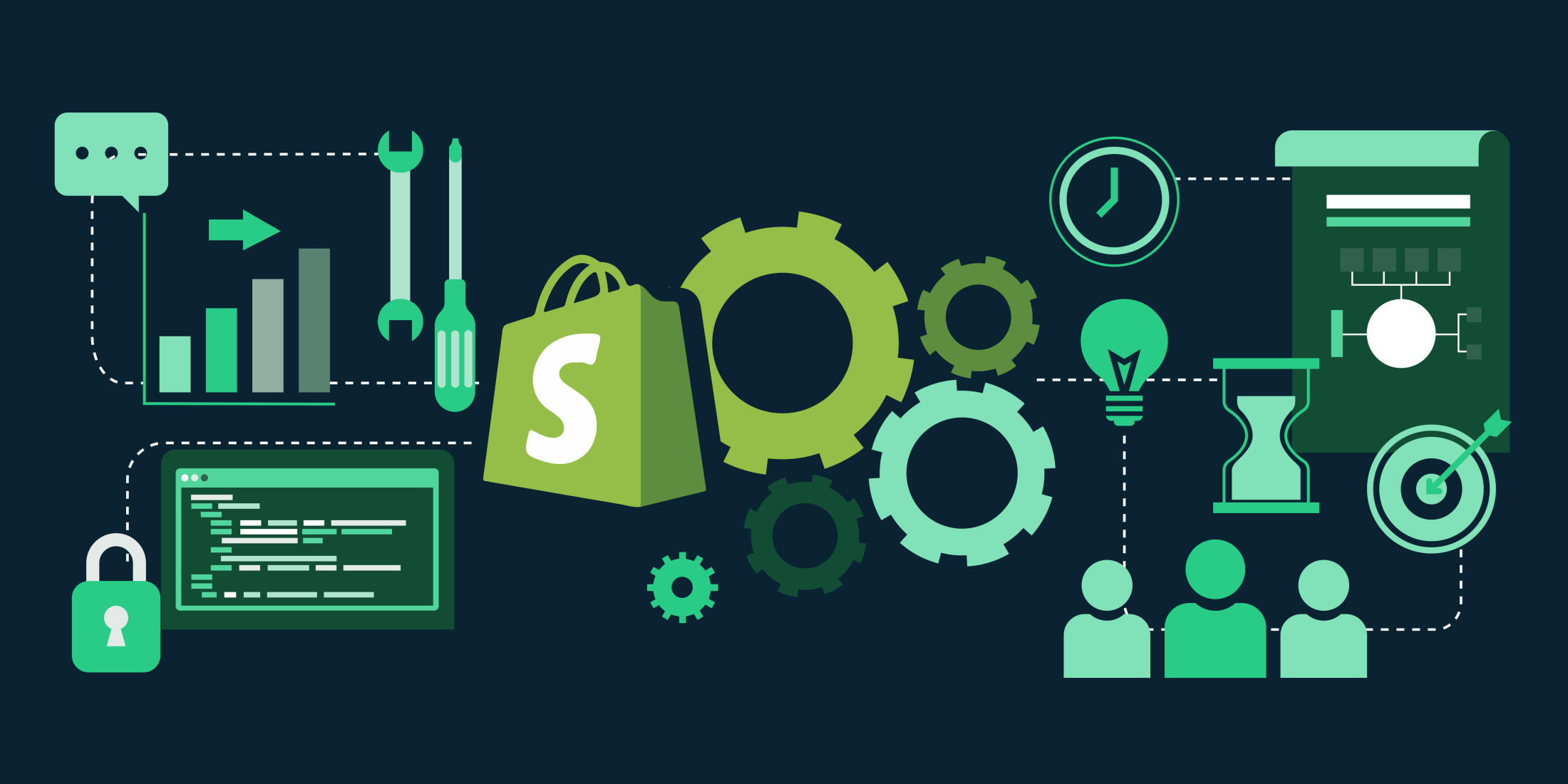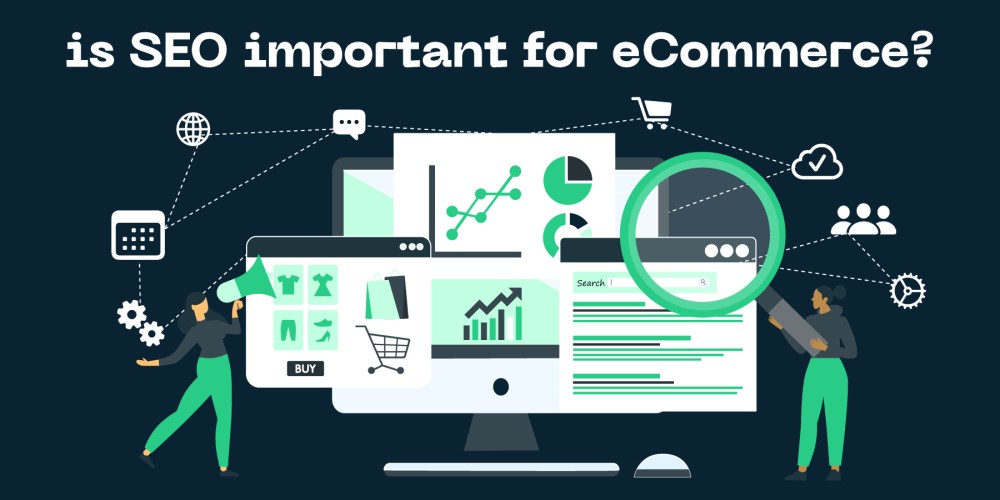How AI Tools Make Competitor Tracking Easier for eCommerce Brands
Key Takeaways
- AI revolutionizes competitor tracking for eCommerce brands by making it faster and more accurate.
- ConvertMate offers cutting-edge AI solutions to automate competitor tracking in eCommerce, helping businesses stay ahead of the game.
- Using AI-driven tools, you can get real-time insights into your competitors, saving time and boosting your market strategy.
- Learn how to implement AI competitor tracking effectively and avoid common pitfalls.
- Discover real-world success stories that show the impact of AI on competitor analysis.
- Stay updated on emerging technologies and future trends in AI competitor tracking.
Introduction to AI in Competitor Tracking
Understanding AI Competitor Tracking
In today’s fast-paced eCommerce landscape, staying ahead of the competition is crucial for brands aiming to boost their conversion rates and market share. Understanding AI competitor tracking is essential in this context as it provides insights that were once labor-intensive and difficult to obtain. By leveraging AI tools, eCommerce brands can monitor competitors’ pricing strategies, product launches, marketing tactics, and customer feedback with remarkable efficiency and precision. This capability not only saves time but also allows marketers to make informed decisions in real-time, thereby enhancing their strategic positioning in an ever-evolving market.
AI tools offer a significant advantage by automating the data collection process, which traditionally required substantial human effort and resources. With AI, eCommerce brands can gather and analyze vast amounts of data from various channels, including social media, review sites, and competitor websites. This automation enables brands to gain a comprehensive understanding of competitor activities, identify market trends, and uncover opportunities for differentiation. Moreover, AI-driven insights can help brands predict competitor moves, allowing them to proactively adjust their strategies and maintain a competitive edge.
For eCommerce store owners and marketers, the implementation of AI in competitor tracking represents a powerful shift towards data-driven decision-making. By utilizing these tools, brands not only gain a deeper understanding of their competitive landscape but also enhance their ability to tailor marketing campaigns and product offerings to meet customer needs more effectively. Ultimately, this leads to improved conversion rates and a stronger market presence. In today’s digital age, adopting AI tools for competitor tracking is not just an option but a necessity for eCommerce brands seeking sustainable growth and success.
Benefits of AI in Competitor Analysis
Incorporating AI into competitor analysis offers a myriad of benefits for eCommerce brands, fundamentally transforming how businesses track and respond to market dynamics. AI tools are adept at processing vast amounts of data quickly and accurately, enabling companies to gather insights that would be too time-consuming or complex to extract manually. These insights include trends in competitor pricing, product range expansions, customer sentiment, and marketing strategies. By leveraging machine learning algorithms, AI can predict potential competitor moves or market shifts, allowing businesses to be more proactive rather than reactive in their strategy. For eCommerce store owners and marketers aiming to increase their conversion rates, this predictive capability is crucial as it can inform decisions on pricing adjustments, product offerings, and promotional activities.
Another significant benefit of using AI in competitor analysis is the enhanced accuracy and depth of insights. Traditional methods of competitor tracking often involve manual research, which can be rife with human errors or biases. In contrast, AI tools can analyze competitor data with high precision and provide a more comprehensive understanding of the competitive landscape. They can track multiple sources of data simultaneously, such as social media, review platforms, and market forums, providing a 360-degree view of competitor activities. This level of detailed analysis allows eCommerce brands to identify opportunities and threats more effectively, fine-tuning their business strategies to maximize competitive advantage.
Moreover, the automation capabilities of AI tools lead to significant time and cost savings. By automating routine analysis tasks, eCommerce businesses can allocate their resources more efficiently, focusing on strategic initiatives rather than getting bogged down by data collection and processing. The speed at which AI can process and analyze information means that businesses can stay ahead of their competitors by quickly adapting to new market trends and consumer preferences. For marketers, this means being able to craft more targeted campaigns that resonate with their audience, ultimately improving conversion rates and driving growth. In an ever-evolving digital marketplace, the ability to swiftly and accurately track competitors is invaluable, making AI an indispensable tool in the arsenal of eCommerce brands.
AI Tools for Competitor Tracking
Popular AI Tools
In the fast-paced world of eCommerce, staying ahead of competitors is crucial for sustaining growth and enhancing conversion rates. AI tools have emerged as indispensable assets for competitor tracking, providing brands with the capability to gather, analyze, and interpret large volumes of data with precision and speed. These tools enable eCommerce businesses to monitor competitors' pricing strategies, promotional activities, and customer engagement tactics in real-time, offering valuable insights that were previously difficult to obtain. By leveraging AI-driven analytics, store owners and marketers can make informed decisions about their product offerings, pricing structures, and marketing campaigns, ultimately driving higher conversion rates.
One of the standout advantages of AI tools is their ability to process data at scale, far beyond human capacity. For instance, AI-powered platforms can track changes across multiple competitor websites simultaneously, flagging new product launches, discounts, and stock levels. This real-time monitoring allows brands to quickly adjust their strategies in response to market shifts, ensuring they remain competitive. Furthermore, AI tools can integrate with existing eCommerce platforms to provide a seamless user experience, making it easier for businesses to incorporate competitor insights into their overall strategy.
Moreover, AI tools excel in predictive analytics, offering eCommerce brands the foresight needed to stay one step ahead. By analyzing historical data and market trends, these tools can predict competitor moves and consumer behavior, allowing brands to proactively adjust their strategies. This predictive capability is particularly beneficial for optimizing inventory management and planning promotional events, ensuring that businesses are always prepared to meet consumer demand. For eCommerce store owners and marketers, adopting AI tools for competitor tracking not only simplifies the process but also enhances strategic decision-making, leading to improved conversion rates and sustained business growth.
Features to Look for in AI Tools
In the fast-paced world of eCommerce, staying ahead of competitors is crucial for success. Artificial Intelligence (AI) tools have become indispensable in tracking and analyzing competitor activities, providing insights that can empower eCommerce brands to make strategic decisions. When considering AI tools for competitor tracking, several features stand out as essential. First, look for tools that offer real-time data analysis. The ability to monitor competitors’ pricing changes, inventory levels, and promotional strategies in real-time can give eCommerce brands a significant advantage by allowing them to respond quickly to market shifts.
Another important feature is data visualization and reporting. AI tools that provide intuitive dashboards and comprehensive reports can help users easily interpret complex datasets. This not only saves time but also aids in identifying trends and patterns that might not be immediately apparent. In addition, tools that offer customizable alerts can help eCommerce brands stay informed about critical competitor developments without the need for constant manual monitoring. These alerts can be tailored to notify users about specific changes in competitor behavior, such as price drops or new product launches, enabling proactive responses.
Lastly, consider AI tools that integrate seamlessly with existing eCommerce platforms and marketing tools. Compatibility with platforms like Shopify, WooCommerce, or Magento, for example, ensures that the insights gained from competitor tracking are easily actionable within your existing infrastructure. Additionally, integrations with marketing tools can help align competitor insights with promotional strategies, enhancing the overall effectiveness of your marketing campaigns. By selecting AI tools with these features, eCommerce brands can not only streamline their competitor tracking efforts but also enhance their overall strategic planning and execution.
Implementing AI Competitor Tracking
Steps to Implement
Incorporating AI tools into your competitor tracking strategy can significantly enhance the efficiency and effectiveness of your marketing efforts. The first step towards implementing AI competitor tracking is to thoroughly assess your current tracking methods and identify areas that require improvement. It is essential to understand what data points you want to monitor, such as pricing, promotions, and customer reviews. By establishing clear objectives, you can ensure that the AI tools you choose will align with your specific business needs, ultimately helping you stay one step ahead of your competitors.
Once you have defined your goals, selecting the right AI tools becomes crucial. Many AI-powered platforms offer varying features designed to streamline competitor tracking for eCommerce brands. It’s important to evaluate different tools based on their capabilities to analyze vast datasets, deliver real-time insights, and integrate with your existing systems. Prioritize those that offer user-friendly interfaces and customizable dashboards, as these elements will allow you to efficiently interpret the data and make informed decisions. By choosing well-suited AI tools, you can transform raw data into actionable strategies, empowering your brand to improve conversion rates and market positioning.
After selecting and integrating the tools, it’s vital to continuously monitor and adjust your strategies based on the insights generated. Regularly reviewing AI-driven reports can unveil new trends and shifts in the competitive landscape, allowing you to respond swiftly and strategically. Additionally, involving your team in interpreting and acting upon these insights can foster a culture of agility and innovation within your business. Remember, while AI tools can significantly enhance competitor tracking, the human element remains indispensable in leveraging these insights to drive growth. By effectively combining technological prowess with strategic planning, eCommerce store owners and marketers can significantly boost their competitive edge in the market.
Pitfalls to Avoid
When implementing AI competitor tracking for your eCommerce brand, there are several pitfalls to be mindful of to ensure the effectiveness of these tools. One of the primary challenges is relying too heavily on automated insights without human intervention. While AI tools can process vast amounts of data and identify trends, they may sometimes fail to comprehend nuanced factors that could impact your market strategies. It’s crucial to balance AI-driven insights with human expertise to interpret data accurately and make strategic decisions. This ensures that your tracking efforts lead to actionable insights rather than just data overload.
Another potential pitfall is ignoring the customization of AI tools to fit your brand’s specific needs. Many eCommerce businesses make the mistake of using out-of-the-box AI solutions without tailoring them to align with their particular market dynamics or business goals. This can lead to irrelevant data or skewed results that do not accurately reflect your competitive landscape. It’s important to configure your AI tools to focus on the most pertinent metrics and competitors, ensuring that the data you collect is both relevant and actionable for your brand.
Lastly, over-reliance on AI tools might lead to complacency in developing your brand’s unique selling propositions (USPs). While it’s beneficial to understand and react to competitors’ strategies, it’s equally important to focus on innovating and strengthening your brand’s own value proposition. AI competitor tracking is a tool to inform your strategy, not dictate it. By avoiding these pitfalls, you can leverage AI tools to gain a competitive edge while staying true to your brand’s unique strengths and offerings.
Case Studies of AI in Competitor Tracking
Success Stories
AI-driven competitor tracking tools have revolutionized the way eCommerce brands monitor their market landscape, offering unprecedented insights and efficiencies. In the past, tracking competitors often involved manual research and guesswork, which could be time-consuming and imprecise. Today, AI tools provide real-time data analysis, allowing businesses to instantly access information about competitor pricing, promotions, and customer sentiment. This empowers eCommerce store owners and marketers to make informed decisions swiftly, staying ahead in a highly competitive market. With AI, the ability to predict competitor moves and adjust strategies accordingly has become a key differentiator for success.
One compelling case study involves an eCommerce brand that leveraged AI tools to track its competitors’ pricing strategies. By utilizing machine learning algorithms, the brand could identify patterns and trends in competitor pricing, allowing them to adjust their own pricing in real-time to remain competitive. This proactive approach led to a significant increase in conversion rates and market share. The AI tools not only provided insights into competitors' current strategies but also predicted potential future moves, enabling the brand to prepare and strategize effectively. Such success stories highlight the transformational impact of AI in turning data into actionable insights.
Another example is an eCommerce retailer that used AI tools to monitor competitor promotions and customer reviews. By analyzing sentiment data, the retailer was able to identify gaps in customer satisfaction that competitors had overlooked. As a result, they tailored their product offerings and marketing campaigns to address these gaps, improving customer satisfaction and loyalty. The ability to swiftly adapt to market changes and customer needs, powered by AI, underscores the strategic advantage that these tools provide. For eCommerce businesses aiming to enhance their competitive edge and drive conversions, integrating AI in their competitor tracking processes is not just beneficial, but essential.
Lessons Learned
In examining various case studies of AI in competitor tracking, several key lessons emerge that are particularly relevant for eCommerce brands looking to enhance their market strategies. One major insight is the critical role of real-time data. AI tools excel in processing vast amounts of information quickly, allowing businesses to stay updated with competitors' pricing, inventory changes, and promotional activities as they happen. For an eCommerce brand, this means being able to adjust strategies on-the-fly, optimizing pricing and marketing tactics to remain competitive. This level of agility was previously unattainable through manual tracking methods, highlighting the transformative impact AI has on strategic decision-making.
Another significant takeaway is the importance of customization in AI solutions. Not all eCommerce businesses have the same needs, which means a one-size-fits-all approach to AI tools can fall short. Successful implementations, as observed in the case studies, often involved tailoring AI systems to align with specific business objectives and market dynamics. This customization enables brands to focus on the competitive factors that matter most to them, whether it’s tracking product reviews, monitoring social media sentiment, or analyzing competitor website traffic. Personalized AI tools provide more relevant insights, which in turn can lead to more effective competitive strategies.
Lastly, the case studies underscore the necessity of integrating AI tools with existing systems for seamless operation. eCommerce brands that successfully leverage AI for competitor tracking often do so by ensuring that new AI capabilities complement their current analytics, CRM, and ERP systems. This integration ensures that insights derived from AI are actionable and accessible across the organization. The lesson here is that the true value of AI is realized when it enhances and synergizes with existing business processes, ultimately driving better performance and higher conversion rates.
Future Trends in AI Competitor Tracking
Emerging Technologies
In the rapidly evolving world of eCommerce, staying ahead of the competition is crucial for success. AI tools have emerged as a game-changer, offering sophisticated solutions for competitor tracking that were once unimaginable. These technologies leverage advanced algorithms and machine learning to monitor competitors in real-time, providing valuable insights that can inform strategic decisions. For eCommerce store owners and marketers, this means having the ability to understand competitor pricing strategies, promotional activities, and customer engagement practices more comprehensively. The adoption of AI in competitor tracking is not just about having more data; it is about having actionable insights that can drive business growth.
Looking ahead, several future trends in AI competitor tracking are poised to redefine how eCommerce brands operate. One significant trend is the increased integration of AI with big data analytics. This combination allows for a deeper analysis of competitor behaviors across multiple platforms, giving businesses a more holistic view of the market. Additionally, the use of natural language processing (NLP) in AI tools is improving the accuracy of sentiment analysis, enabling brands to gauge customer sentiments towards competitors more effectively. These trends underscore the importance of AI in crafting competitive strategies that are both informed and adaptive.
Moreover, as AI technologies continue to evolve, we can expect even more personalized competitor tracking solutions that cater to the unique needs of different eCommerce niches. For instance, AI can tailor its insights based on specific industry trends, regional market dynamics, or consumer behavior patterns. This level of customization can empower eCommerce brands to not only track competitors but also anticipate market shifts and consumer demands more proactively. Embracing these emerging technologies will be essential for eCommerce brands aiming to increase conversion rates and maintain a competitive edge in an increasingly crowded marketplace.
Preparing for the Future
As eCommerce continues to burgeon globally, staying competitive requires a keen awareness of market dynamics and competitor strategies. This is where AI tools are proving to be indispensable, particularly for tracking competitors. Looking ahead, one can anticipate that AI-powered competitor tracking will not only become more sophisticated but also more essential. Future trends suggest that AI will continue to refine its ability to analyze vast quantities of data in real-time, providing eCommerce brands with actionable insights that were previously unimaginable. This evolution will empower businesses to make more informed decisions, optimize their strategies, and enhance their market positioning effectively.
One emerging trend is the integration of AI with predictive analytics to forecast competitor moves and market trends before they occur. By harnessing machine learning algorithms, AI tools can identify patterns and predict potential disruptions or opportunities within the marketplace. For eCommerce brands, this means being able to preemptively adjust pricing strategies, marketing campaigns, and inventory management to outmaneuver competitors. Furthermore, the incorporation of natural language processing will allow AI systems to delve into consumer reviews and feedback, providing a more nuanced understanding of competitor performance and consumer sentiment.
Moreover, as AI technology advances, the democratization of these tools is expected to level the playing field. Smaller eCommerce brands, which might have previously been outpaced by larger competitors with more resources, will have access to the same high-level insights and strategic advantages. This shift could lead to a more dynamic market landscape, where agility and innovation become the key differentiators. For marketers and store owners, embracing AI tools for competitor tracking is not just about keeping up with the competition; it is about setting the stage for sustained growth and increased conversion rates in an ever-evolving eCommerce environment.
FAQS
How do AI tools enhance competitor tracking for eCommerce brands?
AI tools enhance competitor tracking for eCommerce brands by automating the data collection process, providing real-time analytics, and offering insights into competitor strategies. They can monitor pricing, promotions, and product launches efficiently, enabling brands to stay competitive.
What specific AI features assist in competitor analysis?
Key AI features that assist in competitor analysis include natural language processing for sentiment analysis, machine learning algorithms for predictive analytics, and automated alerts for tracking significant changes in competitor activities.
How does ConvertMate utilize AI for competitor tracking?
ConvertMate uses AI agents to integrate with various eCommerce platforms and analytics tools, providing comprehensive data insights. This allows for effective tracking of competitor SEO strategies, pricing models, and customer engagement practices to help increase conversion rates.
Can AI tools predict competitor pricing strategies?
Yes, AI tools can predict competitor pricing strategies by analyzing historical pricing data and market trends. Machine learning models can forecast price changes and suggest optimal pricing strategies for your brand.
How can AI-driven competitor tracking improve SEO strategies?
AI-driven competitor tracking can identify the keywords and content strategies competitors are using successfully. This information helps brands optimize their own SEO strategies by targeting the right keywords and improving content quality to outrank competitors.
Is it possible to automate competitor monitoring with AI tools?
Yes, AI tools can automate competitor monitoring by continuously scanning the web for competitor updates, such as new product launches, promotional offers, and content updates. This reduces manual effort and ensures that you have the latest competitive insights readily available.
How does real-time data from AI tools benefit eCommerce brands?
Real-time data from AI tools allows eCommerce brands to react swiftly to market changes. It helps in making informed decisions about marketing strategies, pricing adjustments, and stock management, ultimately leading to improved responsiveness and competitiveness.



